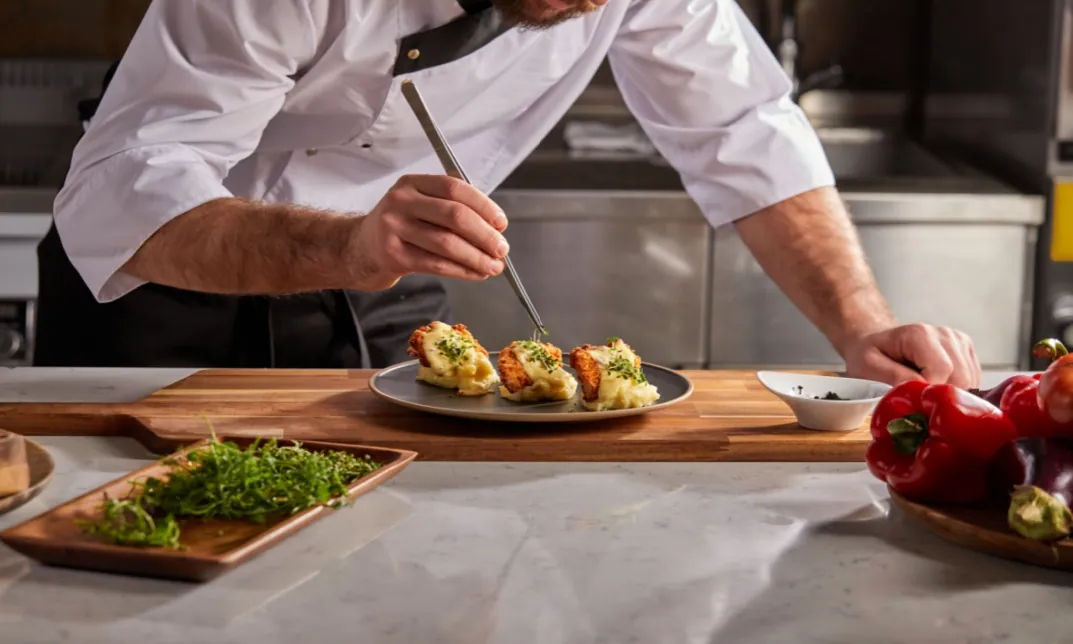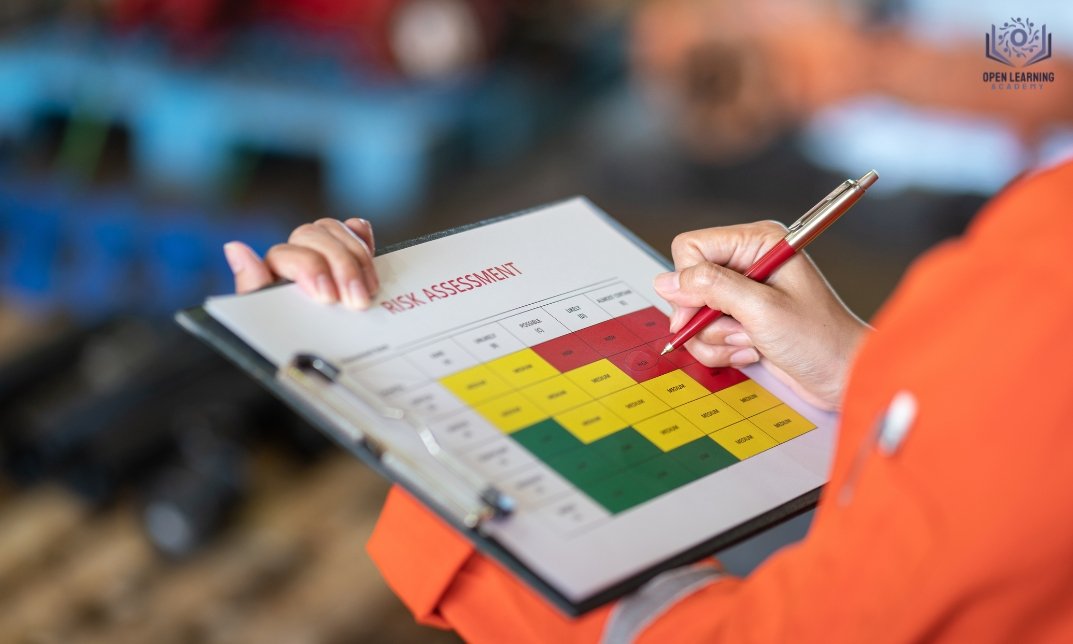No products in the cart.
Want to know how to start being a chef? Start where it counts—in the kitchen. You don’t need a fancy degree. Most chefs begin at the bottom, scrubbing pans, chopping veg, and doing the jobs no one else wants. That’s where the real learning happens. If you’ve got hunger and grit, you can move from porter to head chef. This guide shows every step, from your first shift to running a kitchen. It’s long hours, high heat, and hard knocks—but it’s worth it.
Why Starting as a Kitchen Porter Builds Real Skills
Many top chefs started by washing dishes. It’s the job no one dreams of, but it teaches you what kitchens really are. You clean nonstop, watch the team, and feel the pressure from the start.
You learn how a kitchen runs. You understand timing, teamwork, and what “in the weeds” really means. You watch how orders fly in. You see how chefs keep up. This job builds your backbone and stamina.
First Things to Learn When You Step Into a Kitchen
Respect the Heat
Kitchens run hot—literally and mentally. The pressure never stops. You’ll sweat, you’ll slip, and you’ll mess up. That’s okay. What matters is showing up again the next day.
Keep It Clean
Clean stations mean safe food. Learn the cleaning rules fast. Watch how others wipe down boards, wash knives, and mop spills.
Stay Out of the Way—Until You’re Ready
When chefs are mid-service, don’t talk. Don’t grab stuff from their station. Watch quietly. Ask questions after the rush.
How to Start Being a Chef Without School
Some chefs study. Many don’t. Here’s how to build your career straight from the kitchen floor:
Learn By Doing
Start as a porter or prep cook. Chop onions, wash spinach, weigh pasta. Say yes to every task. Keep your head down and learn.
Ask to Help
Once you’re trusted, ask to do more. Can you help plate? Stir a sauce? Prep tomorrow’s stock? Chefs notice hustle.
Take Courses at Night
Short courses can help. Look for Level 2 Food Hygiene. Try a weekend class in knife skills or sauces. These show commitment and help with job moves.
First Jobs That Get You in the Door
Kitchen Porter
You clean everything. Pans, surfaces, dishes, fridges. You run for stock. You help carry food. You are the engine room.
Prep Cook
You cut, weigh, wash, and store ingredients. This job teaches sharp knife skills and time management.
Commis Chef
You support every station. Some days you’re on veg. Others, sauces. You learn the ropes by doing everything.
Line Cook
You cook during service. You plate. You time everything. You push through the dinner rush without blinking.
Kitchen Tools You Must Know Early
- Chef’s Knife: Your best tool. Keep it sharp. Learn to use it fast and safe.
- Chopping Board: Know colour codes—red for raw meat, green for veggies.
- Tongs and Spatulas: Your extensions. Flip, toss, turn. Use them right.
- Thermometer: Know when food hits safe temps.
Build Tough Habits from Day One
Show Up Early
Always arrive early. Be changed and ready before your shift starts. It shows you care.
Be Ready to Stay Late
The kitchen doesn’t end when the clock says so. Stay until the last pan is scrubbed.
Never Say “That’s Not My Job”
If the head chef says mop the floor, you mop. That’s how respect works.
Climbing the Ladder in the Kitchen
No one hands you a title. You earn it with sweat and skill. Here’s how the journey looks:
- Commis Chef: You prep and support everyone.
- Chef de Partie: You run one station, like grill or pastry.
- Sous Chef: You run the kitchen when the boss is off. You manage staff and solve problems.
- Head Chef: You write the menu, order supplies, train the team, and set the tone.
What Every Head Chef Looks for in a Team
- Speed: Can you chop a box of onions in ten minutes?
- Calmness: Can you fix a mistake without freaking out?
- Consistency: Can you plate the same way every time?
- Focus: Can you work ten hours and not zone out?
Skills That Help You Grow Faster
Taste Everything
Don’t just cook. Taste. Know when a dish needs salt or acid. Develop your flavour memory.
Learn to Lead
Start small. Help the new porter. Run the pass for a minute. Speak clearly and listen hard.
Keep a Notebook
Write down what you learn. Recipes, prep lists, chef tips. You’ll thank yourself later.
What Chefs Wish They Knew Earlier
- Buy Good Shoes: Your feet carry you through 14-hour shifts.
- Sleep Matters: No sleep? No focus.
- Don’t Burn Bridges: The industry is small. Word travels fast.
- Take Care of Your Body: Cuts, burns, back pain—it adds up. Stretch. Eat right.
Kitchen Culture: The Real Talk
It’s Not Always Friendly
Some kitchens have yelling. Some don’t. Either way, you need a thick skin. Don’t take things personally.
Feedback Is Fast
If your sauce is too salty, you’ll hear it right away. That’s not rude—it’s survival.
Teamwork Is Everything
You can’t cook alone. Help your teammates. If you see someone drowning, step in.
How Kitchens Are Changing in 2025
More Plant-Based Cooking
Vegan options aren’t extra—they’re expected. Learn to cook with lentils, tofu, and mushrooms like a pro.
Smarter Kitchens
New software helps track stock, orders, and bookings. Learn the tech. Stay ahead.
Sustainability Matters
Waste less. Use every part of an ingredient. Source local when you can. These things matter to diners.
Real Chefs Who Started at the Bottom
- Tom Kerridge: Started as a pot washer. Now runs award-winning pubs.
- Angela Hartnett: Began as a waiter. Worked her way into Gordon Ramsay’s kitchens.
- Simon Rogan: No formal training. Learned by doing. Built Michelin-starred restaurants.
What Makes You Stand Out in a Kitchen
- Reliability: You show up. Every day.
- Curiosity: You ask questions. You want to know more.
- Stamina: You outlast others. You don’t quit.
- Pride: You care about every plate.
When to Move On to Your Next Kitchen
If you’ve stopped learning, look elsewhere. If the team doesn’t care, go where people do. A good kitchen pushes you to grow.
Build a Long-Term Chef Career
Try Different Kitchens
Work in pubs, hotels, cafés, and fine dining. Each one teaches something new.
Travel
Cooking abroad builds skill and character. New foods. New challenges. New respect.
Mentor Others
One day, someone will be the new you. Help them the way others helped you.
Final Advice: Start Where the Heat Is
You now know how to start being a chef. You don’t need to be young. You don’t need a degree. You need hunger, effort, and thick skin. Get into a kitchen. Any kitchen. Mop the floor. Chop the onions. Plate the sides. Stay late. Listen hard.
Being a chef isn’t easy. It’s burns, sweat, and a ton of pressure. But it’s real. It’s creative. It’s powerful. And for the ones who stick with it, it becomes a life worth cooking for.
Want to kick-start your chef journey the right way? Enrol in our Level 5 Professional Chef Course at Open Learning Academy today and level up fast.




